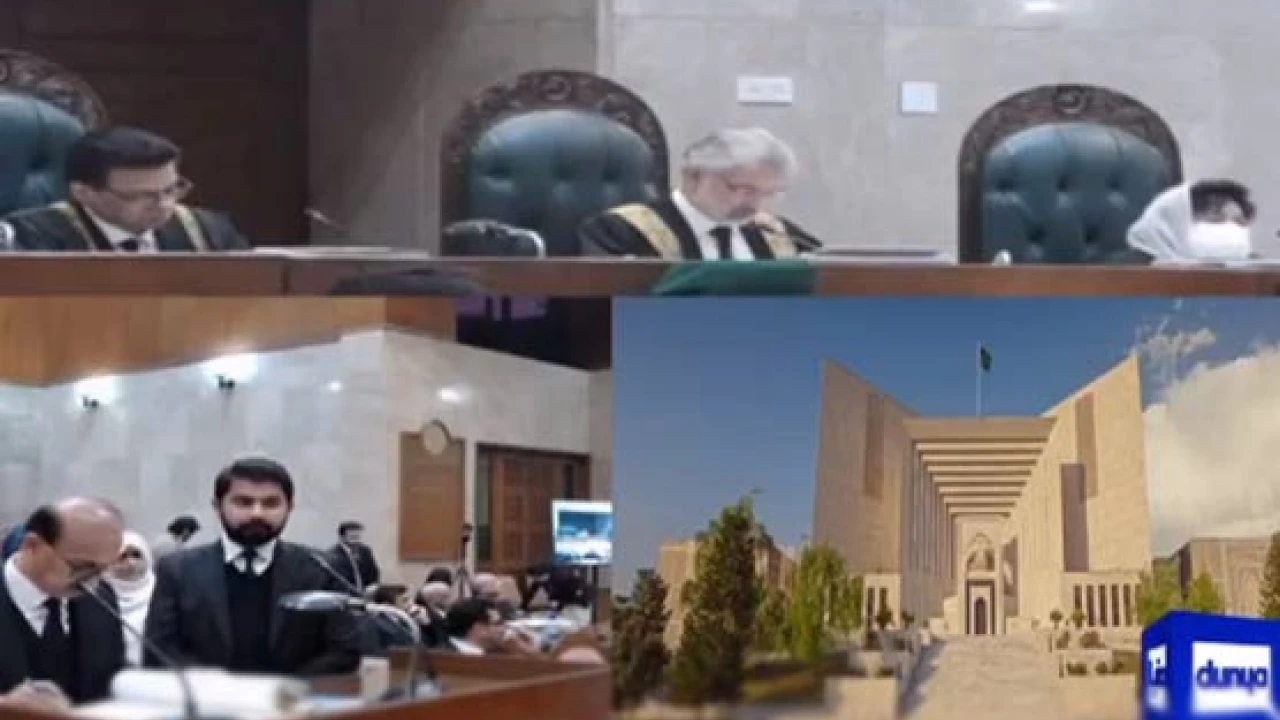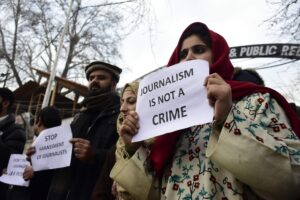• Another 350 went missing after govt assurance to apex court on unlawful detentions, says amicus Faisal Siddiqui
• Justice Afghan observes action only possible if those recovered are more forthcoming about their ordeal
• SC judge hints at taking up 26th amendment ‘in due course’
ISLAMABAD: The Constitutional Bench of the Supreme Court on Tuesday emphasised that only parliament holds the authority to address and resolve the longstanding, yet unlawful, practice of enforced disappearances — a persistent issue that has plagued the nation for decades.
“The solution to this problem is to be found by parliament,” observed Justice Jamal Khan Mandokhail, a member of the six-judge Constitutional Bench, while addressing senior counsels Barrister Aitzaz Ahsan and Sardar Latif Khan Khosa.
“The court has always recognised parliament as the supreme body and now it is for parliament to prove it so,” he said.
Headed by Justice Aminuddin Khan, the bench had taken up a number of petitions pertaining to enforced disappearances. It issued notices to the attorney general’s office and the interior ministry and asked the stakeholders concerned to submit comprehensive reports at the next hearing, to be held after a week.
On Jan 3 this year, a three-judge Supreme Court bench, headed by then Chief Justice of Pakistan (CJP) Qazi Faez Isa had ordered the federal government to furnish an undertaking in writing, signed by senior-most officers of the ministries concerned, ensuring that no citizen would be detained except in accordance with the law.
The court had appointed senior counsel Faisal Siddiqui as amicus curiae at the time, to assist it in the matter.
On Tuesday, Mr Siddiqui regretted that 350 more people had gone missing after the government’s assurance, highlighting that state officials were disobeying the court’s previous orders.
When Justice Khan observed that the court aimed to move towards a solution, Justice Mandokhail remarked that resolving the issue of missing persons required stakeholders to come together.
Mr Siddiqui said the loved ones of various families had been missing for the past 10 to 20 years and reminded the bench that during the last hearing, the apex court had ordered a progress report, but no record had been submitted to date.
Later, speaking to the media, Defence of Human Rights Chairperson Amina Masood Janjua said she was representing 1,380 cases of missing persons. She suggested that instead of the Commission of Inquiry on Enforced Disappearances (CIED), a truth and reconciliation commission should be established, as the current body had failed to address the concerns of the families of the missing.
Recovered persons not forthcoming
During the hearing, Deputy Attorney General Malik Javed Iqbal Wains informed the court that the issue of missing persons was discussed in the cabinet meeting held on Monday. A sub-committee had been tasked with providing recommendations to address the chronic problem of enforced disappearances.
Justice Muhammad Ali Mazhar questioned how many missing persons had been recovered by the CIED and whether the commission had data on those responsible for the disappearances. Justice Hassan Azhar Rizvi also inquired if individuals who had been recovered disclosed who had abducted them.
At this, Justice Mandokhail observed that those who returned home often did not reveal the identities of their captors. “When they return, they simply say they had gone to Northern Areas for a few days of excursion,” he remarked.
Justice Musarrat Hilali, addressing Mr Khosa, questioned whether members of his political party — PTI — who were recently picked up, disclosed who had taken them upon their return.
In response, Mr Khosa said the children of those who went missing might also be targeted if such information was revealed.
Justice Naeem Akhtar Afghan noted that many individuals returned home following orders from the Balochistan High Court. However, he regretted that such individuals often refrained from appearing before any judicial forum to record statements about their experiences.
If they were forthcoming, Justice Afghan observed, it would be possible to initiate court-martial proceedings against those involved in enforced disappearances, adding that some cases had tarnished the state’s reputation.
‘Political commentary’
When Mr Khosa suggested that the country had become a ‘deep state’, the court discouraged him from engaging in political commentary.
Instead, it advised resolving the issue through a session of the National Assembly or a joint sitting of parliament.
The counsel questioned whether the issue of missing persons should be addressed in the same manner as the 26th amendment, and noted that Balochistan was the most affected province in terms of missing persons.
Justice Mandokhail assured him that the court would also consider the amendment package in due course. He reiterated that both the nation and the court were looking to parliamentarians for a solution to this persistent issue.




